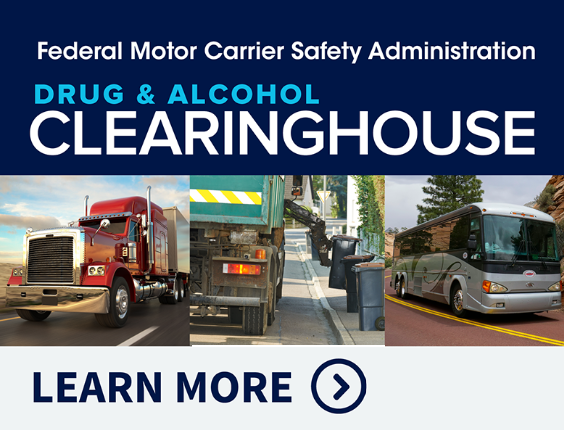What if my driver fails or refuses a test?
What Employers Need to Know
A driver fails a drug or alcohol test by testing positive to a drug test, or registering a 0.04 or greater alcohol content. Either of these results requires the driver to be immediately removed from performing safety-sensitive functions (i.e., driving CMVs) until successful completion of the return-to-duty process with a DOT-qualified substance abuse professional.
A driver's refusal to submit to a drug or alcohol test is generally equivalent to testing positive to a drug or alcohol test. The driver must immediately be removed from performing safety-sensitive functions (i.e., driving CMVs) until successful completion of the return-to-duty process with a DOT-qualified substance abuse professional. The DOT regulations outline refusals to test for drugs and alcohol. Some refusals are determined by medical review officers (49 CFR Part 40 Subpart G) and alcohol technicians (49 CFR Part 40 Subpart N). For others, the determination is your responsibility. Refusals to submit to a drug or alcohol test are defined in §382.107. You must base your decisions on the DOT instructions and NOT on personal opinions about whether the employee is a long-time reliable worker; has ever tested positive or refused a test; was correctly selected for the test; or claims to have misunderstood the collector’s instructions to remain at a collection site, among others. The employer handbook available on the ODAPC Web site provides a list of Part 40 refusals and the instructions for handling them. It is, therefore, critical to understand the specific circumstances that define a refusal. These can be found in §40.191, §40.261 and §382.107.

